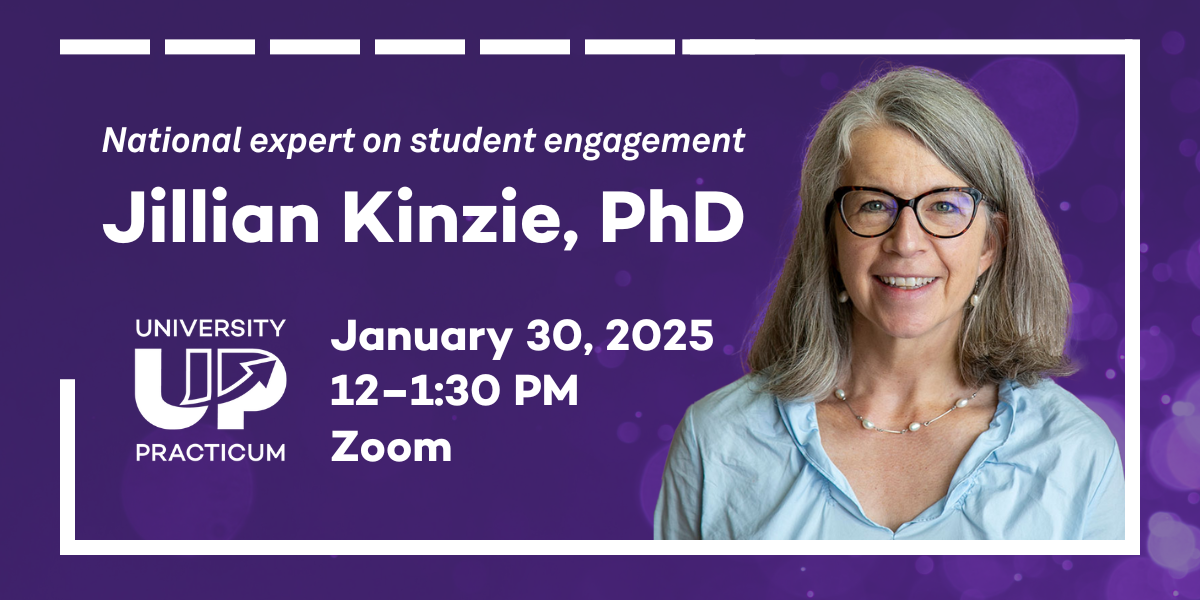| VIEW IN BROWSER | |
 | ||||||||||||||||||||||
Letter from the Senior Director of the Searle Center Learning Together: Events, Programs, & Services Centering DEIJ
Teaching Tips: Pinch Points & Plus Ones | ||||||||||||||||||||||
Dear Colleagues,As we welcome the new year, it's an opportune time to reflect on where and how we might begin again. As educators, we can encourage students to embrace "restarts" in their academic journeys. The importance of developing an agile mindset is highlighted in Practice for Life: Making Decisions in College, based on interviews with over 200 students at selective liberal arts institutions with a range of experiences from struggling to thriving. To balance the prescriptive narrative that “these are the best years of your life,” we can acknowledge that not all academic endeavors will be equally enthralling and emphasize that there is no single path to success. Most importantly, we can encourage students to see themselves as playing a crucial role in making their education meaningful. What emerges from the study is a view of engagement as episodic and particularistic, varying with different subject matter, instructors, teaching methods, and assignments. That means that every new year, term, course, and class meeting presents new opportunities for engagement. Embracing restarts, particularly after a setback, bolsters the resilience students need to navigate their educational paths with confidence and purpose, leading to positive outcomes such as persistence, personal development, satisfaction, and learning. This issue of our newsletter maps a variety of engagement opportunities and learning pathways for instructors seeking fresh approaches and collegial support that is critical for vitality. The Supporting Student Success Practicum—our largest and most comprehensive program—will advance the University Priority of building resilient students and fostering a sense of belonging. In conversation with educational developers and faculty experts, participants will grapple with the wicked problem of defining, facilitating, and assessing student success. To recognize their commitment, participants will have the opportunity to earn a digital badge upon completion. We also feature the updated Northwestern Principles of Inclusive Teaching, which have recently been enhanced with the latest scholarship on supporting student success and safeguarding instructor vitality. Additionally, we are excited to announce the launch of our New Assessment & Curricular Change Website, with easy-to-navigate resources for each stage of the assessment process cycle. Learn how the SEARLE Framework values of being student-centered, equitable, authentic, responsive, lifelong, and empathetic can guide effective and context-specific assessment practices at Northwestern. In our What We're Reading section, we explore Radical Reimagining for Student Success in Higher Education, which calls for an integrated, holistic approach to student success. The book calls for purpose-driven, active, and collaborative learning, and provides practical pedagogical strategies that can inspire and engage students. Finally, don't miss two featured interviews. In our Educator Spotlight, Distinguished Fellow of the Searle Center Cynthia Nazarian shares lessons from her research and teaching, including the "resilience of the voice that refuses to be silenced" and the value of listening to student feedback to make mid-course adjustments that will deepen learning. In Cultivating Resilience, Northwestern health psychologist Elizabeth Addington offers evidence-backed ways to increase positive emotions, including small acts of appreciation that can build meaningful relationships and foster a more resilient learning environment. May this new year bring us closer to our collective aspiration to ensure that the learning of every Northwestern student is rigorous, transformative, and supported by inclusive, evidence-based teaching. Warm Regards,Jennifer Keys, Ph.D. | ||||||||||||||||||||||
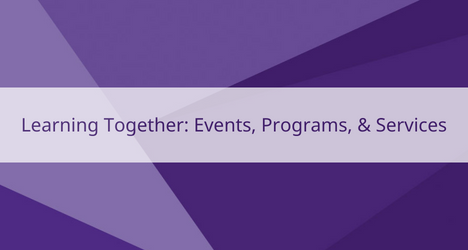 | ||||||||||||||||||||||
| ||||||||||||||||||||||
Supporting Student Success Practicum Supported by the Office of the Provost, the University Practicum is the largest, most comprehensive program offered at Northwestern for instructors to deepen their teaching practice. This year's topic was informed by a survey of Northwestern instructors and advances the University priorities of delivering an outstanding educational experience and building resilient students and a sense of belonging. The practical, flexible, and supportive online practicum includes synchronous online sessions, learning labs, a faculty panel, and individual consultations. Participants will have an opportunity to explore multiple factors shaping students’ holistic success, including
Participants who complete a flexible set of required components will receive a digital badge. Registration is now open for the winter and spring iterations: Feb. 4-28 or April 1-25. Keynote Address | January 30, 2025, noon–1:30pm CST Questions? Email practicum@northwestern.edu | ||||||||||||||||||||||
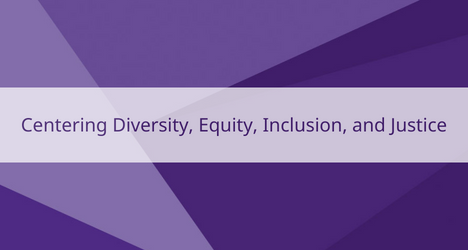 | ||||||||||||||||||||||
Northwestern Principles of Inclusive Teaching: Recently Updated and EnhancedBy Veronica Womack, Associate Director of Inclusive Teaching and Eun Sandoval-Lee, Project Administrator of Strategic Initiatives The Northwestern Principles of Inclusive Teaching were developed to enable the full participation, engagement, and learning of all students through the fostering and maintaining of inclusive learning environments, which are at the core of Northwestern's mission. Created in collaboration with the Office of Provost, the Searle Center, the Office of Institutional Diversity and Inclusion, the Office of Civil Rights and Title IX Compliance, and faculty, the Principles were recently updated through a university-wide review led by the Searle Center. The updated Principles feature new resources for each of the eight principles, including learning and teaching guides created by the Searle Center, new strategies for cultivating a welcoming and inclusive course climate through relationship-building, and a renewed call to honor and be compassionate toward one’s own lived experiences in the classroom. These incorporations align with the Searle Center’s efforts to support student and instructor resilience. Many of the inclusive teaching and learning frameworks which are featured throughout the Principles—such as trauma-informed teaching, Universal Design for Learning, and transformative pedagogies—support student resilience by emphasizing the need for instructors to be transparent, learner-centered, and community-driven. Below, we highlight frameworks and strategies to nurture instructor vitality by cultivating resilience and resistance to burnout. Inspired by the themes in Unraveling Faculty Burnout: Pathways to Reckoning and Renewal (Pope-Ruark, 2022), each strategy connects to an updated Principle. Knowing and Following Your Purpose
Practicing Compassion for Yourself and Others
Deepening Connections with Peers
Want to learn more about how the Northwestern Principles of Inclusive Teaching can enhance inclusive teaching and cultivate resilience? Join in community with other instructors during winter quarter's facilitated Inclusive Teaching Reading Group —attend any or all sessions. Sign up to join the reading group. | ||||||||||||||||||||||
New Assessment & Curricular Change WebsiteBy Lauri Dietz, Director of Pedagogy and Assessment, and Lina Eskew, Senior Assistant Director of Equitable Assessment We are excited to announce the launch of our refreshed Assessment and Curricular Change website! If you have consulted with us or attended one of our assessment workshops, you may recognize the assessment process cycle, which now inspires the organizational structure of the site. For each cycle stage, we define the process, highlight course- and program-level applications, and provide practical, ready-to-implement strategies. The assessment cycle is grounded in our newly articulated SEARLE Framework, which reflects our shared values—student-centered, equitable, authentic, responsive, lifelong, and empathetic—for building a meaningful and sustainable assessment culture at Northwestern. Developed through our collaborations with the Northwestern community, this framework guides our approach to working across schools and programs to promote effective and context-specific assessment practices. This value framework will be published in Transformative Dialogues early 2025—stay tuned for its release! We invite you to explore our updated website and share your feedback. We will continue to add new resources for each cycle stage, so let us know what would be most helpful to you. As always, reach out to us if you'd like schedule a consultation or customized workshop. Wishing you a new year filled with purposeful and joyful assessment! | ||||||||||||||||||||||
 | ||||||||||||||||||||||
Educator Spotlight: Cynthia NazarianBy Laura Ferdinand, Assistant Director of Content and Communication Each quarter, we feature Northwestern educators doing innovative work in the classroom. These short interviews showcase their educational journeys, signature styles, and how their teaching has been shaped by their work with the Searle Center. | ||||||||||||||||||||||
| ||||||||||||||||||||||
In spring of 2024, Northwestern's Office of the Provost honored Cynthia Nazarian with a University Teaching Award, recognizing her innovative curricular leadership and considerable contributions to student learning. Recently, the Charles Deering McCormick Professor of Teaching Excellence and Distinguished Fellow of the Searle Center shared the ways she encourages students to engage unfamiliar perspectives and work through challenging course materials, building in moments to take pride in their accomplishments. What does your research on Early Modern Europe suggest about the ways contemporary people can cultivate resilience within our current global contexts? Through my research, my advising and my teaching, I’ve come to believe that VOICE = ACCESS. And moreover, it seems that very little can overtake the resilience of the voice that refuses to be silenced, but continues reaching out in spite of struggle. What advice would you give to new educators about building and maintaining resilience in their teaching practice? I think it’s important to check in often with students both individually and as a group to track the progress of a class along the way. Comments on CTECs help our future students, not our current ones. I believe that asking for student feedback over the course of the quarter allows me to keep that close eye on how well the course is meeting their needs while challenging them to continue moving forward. I also value light feet—that is, standing ready to adjust and make substantive changes mid-course in response to how students are advancing the material. | ||||||||||||||||||||||
What We're ReadingBy Denise Drane, Senior Associate Director of Research and Innovation Radical Reimagining for Student Success in Higher EducationEdited by Jo Arney, Timothy Dale, Glenn Davis, and Jillian Kinzie At the core of the book is a call for a radical reimagining of higher education, emphasizing the need for an integrated, holistic approach to student success. The authors argue that piecemeal efforts are no longer sufficient in today’s complex higher education landscape, shaped by shifting student demographics and diminishing resources. Instead, they propose centering student success in every aspect of the university, from institutional structures to pedagogical practices. Pedagogical Transformation and Support for InstructorsA particularly compelling chapter, authored by Mark Canada and Jeffrey Gayton, examines the central role of learning in student success. Canada and Gayton argue that learning—purpose-driven, active, experiential, authentic, and collaborative—should be the heart of the university. This chapter offers an excellent discussion of pedagogical strategies, including active and authentic learning approaches that inspire and engage students. It also provides concrete examples and an evidence base that faculty can apply directly to their own teaching practices. Timothy Dale and Joseph Foy follow with a chapter on how institutions can support faculty who are committed to student success. Strategies include creating mentoring networks for instructors, providing them with professional development around student success and incorporating student success frameworks in faculty/instructor review criteria. | ||||||||||||||||||||||
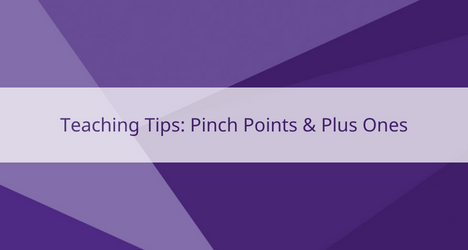 | ||||||||||||||||||||||
Cultivating Resilience: Insights from Health Psychologist Elizabeth AddingtonBy Veronica Womack, Associate Director of Inclusive Teaching Health psychologist Elizabeth Addington, Assistant Professor in the Feinberg School of Medicine's Department of Medical Social Sciences, works to enhance people's ability to manage stress, increase their positive psychosocial experiences, and improve their physical health and quality of life as Associate Director of the Positive Psychology & Health Investigation Group Lab. Recently, she sat down with the Searle Center's Associate Director of Inclusive Teaching, Veronica Womack, to discuss the power of cultivating positive emotions and self-compassion as well as how individual resilience can enable continued work toward making systemic change. At the Searle Center, we recognize the importance of building positive relationships and learning environments. This includes faculty-to-student and peer-to-peer relationships. Based on your research, what might instructors do to cultivate or enhance meaningful relationships that will further support one’s resilience? It can be really small. Again, I'll emphasize that the point of these things can be really small, but still powerful. It might be just a quick comment or quick message of “Hey, thanks for that moment of humor in the meeting today. I really needed a good laugh.” Or a note in your grading like, "great job connecting these two ideas together. This is really insightful.” Something to really see and acknowledge the other person for the strengths that you're seeing in them.
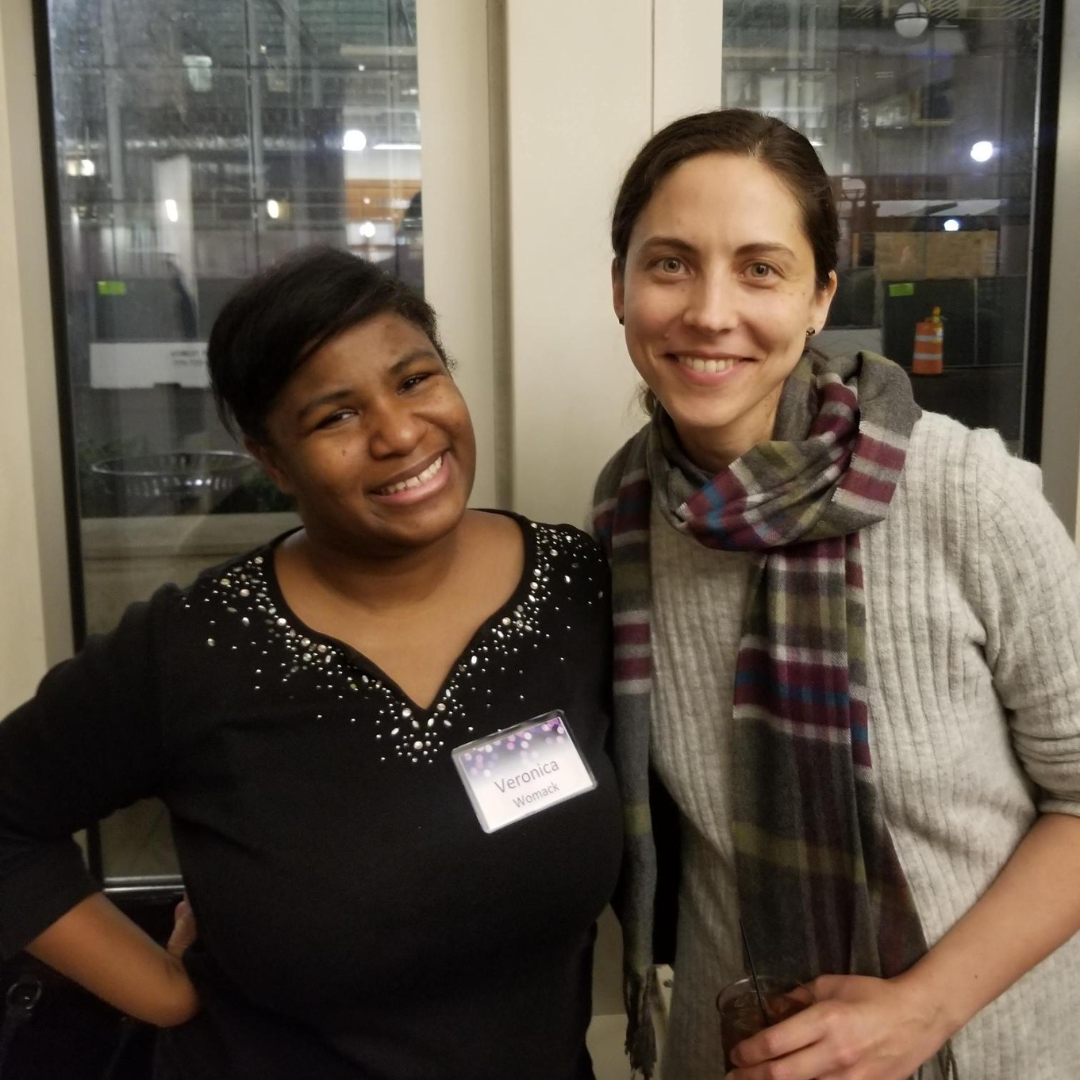
Veronica Womack (left) and Liz Addington. | ||||||||||||||||||||||
|
|
Copyright © 2024 Searle Center for Advancing Learning and Teaching |










